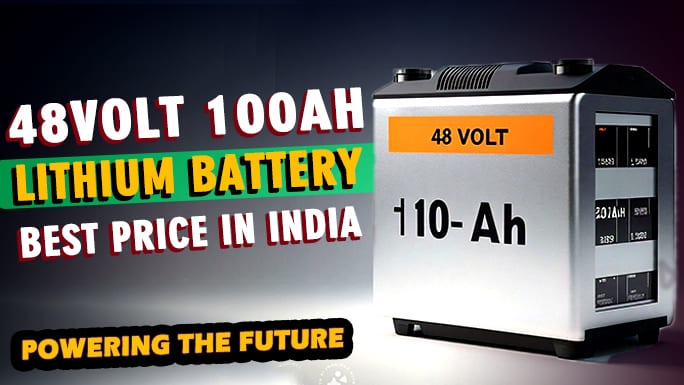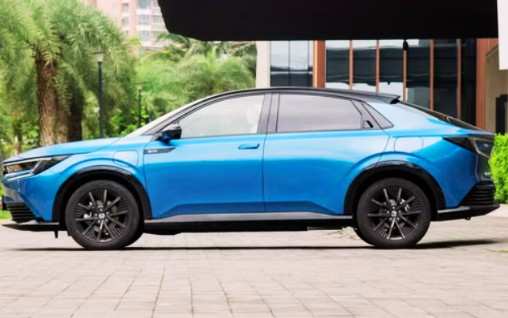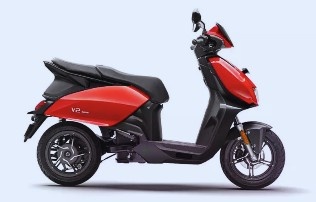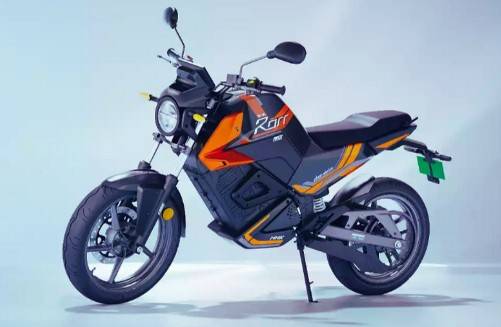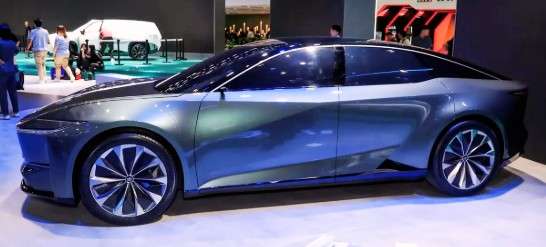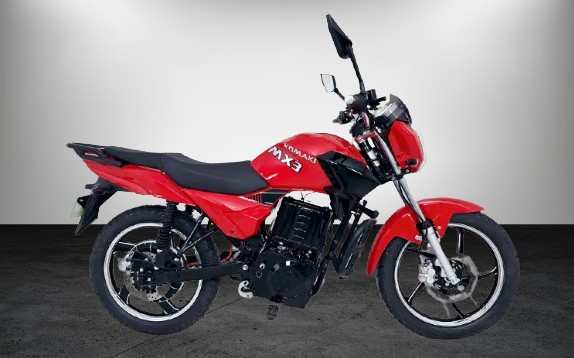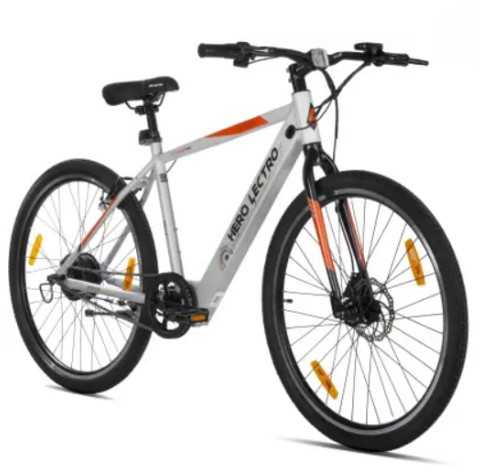The demand for green energy is continuously increasing in India. That is why lithium-ion batteries have become very important. It is used for electric vehicles and to store solar energy. The 48-volt 100Ah lithium battery is versatile and has a long life. That is why there is a lot of demand for it in India. Not only does it last longer but is also less expensive.
In today’s blog, we will know about the price of a 48 volt 100Ah lithium battery price in India. We will see what factors affect its price, such as the cost of making it, the tax on bringing it from abroad and the competition between Indian and foreign companies. Additionally, we will also know why it is better than the old lead-acid batteries. It lasts longer, is lighter in weight and causes less harm to the environment.
Whether you work in a company, are a technology enthusiast, or just want to learn about green energy, this blog is for you! With this, you will get complete information about the price and market of 48 Volt 100 Ah Lithium Battery in India. So let us know how these batteries are becoming an important part of India’s future energy!
Benefits of 48 V 100Ah lithium-ion battery
- More power: These can store more power in less space than older batteries. This makes vehicles run longer and can be easily used in small equipment also.
- Long life: These batteries last for years and do not get damaged again and again. Because of this, there is no need to change them again and again and money is also saved.
- Less power wastage: They charge faster and last longer. They are great for storing clean energy like solar power.
- Lightweight: These are much lighter than old batteries. With this, vehicles and other equipment can move more easily.
- Environment friendly: They create less pollution in making and using. Due to this, air and water remain clean.
- Runs in all weather conditions: These run well even in extreme heat or extreme cold.
- Safer: These come with a special system that prevents the 48 Volt 100Ah Lithium Battery from overheating or overcharging.
- Multiple uses: These can be combined to create a 48 Volt 100Ah Lithium Battery with even greater power. They are also very useful for storing electricity at home or office
Factors Affecting 48 Volt 100Ah Lithium Battery Prices
With the increasing demand for 48V 100Ah Lithium Battery in India, it is important to understand its price. Let’s see what factors affect its price:
- Raw Material Cost: The prices of raw materials required to make lithium-ion batteries, such as lithium, cobalt and nickel, fluctuate. Higher raw material costs increase the overall cost of the 48 Volt 100Ah Lithium Battery.
- Manufacturing Cost: labour, energy and complexity of the production process directly affect the price of the 48 Volt 100Ah Lithium Battery. The cost of lithium-ion cells, electronics and packaging materials are important factors.
- Import Duties: Lithium-ion cells manufactured in India are still in the development phase. Therefore, many manufacturers have to rely on importing cells, which are subject to government import duty. Changes in these charges can affect the price of the 48 Volt 100Ah Lithium Battery.
- Competition: Competition between Indian and international suppliers helps in bringing down the price. The more manufacturers there are in the market, the more competition there will be and the greater the chances of consumers getting better prices.
- Demand and Supply: An increase in demand in the market can increase the prices, while an increase in supply can reduce the prices. The demand for 48V 100Ah lithium battery is continuously increasing, so some fluctuations may be seen in prices.
- Battery Management System (BMS): Advanced BMS increases safety and performance, but also costs more. Batteries with simple BMS may be less expensive, but safety features may have to be compromised.
- Brand Value: Batteries from well-known brands are often more expensive because consumers trust their quality and reliability. Batteries from less well-known brands may be cheaper, but there may be slight differences in quality.
- Technology Advancements: As 48 Volt 100Ah Lithium Battery technology improves, the manufacturing process becomes more efficient and the use of raw materials is reduced. This is expected to lower battery prices in the future.
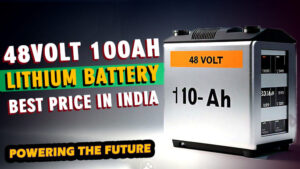
Current market prices in India
The 48V 100Ah Lithium ion battery price in India depends on many factors, such as manufacturer, battery quality and features. These batteries usually cost between ₹60,000 and ₹1,20,000. Certain factors account for the difference in pricing between brands and quality:
- Brand and features: A well-known brand or high-protection 48 Volt 100Ah Lithium Battery (a good BMS) may be expensive, while cheaper generic batteries can be found.
- Online vs. Offline: You can find cheaper prices in online stores as they have to sell for less and you can easily compare the prices of many stores. Discounts and offers are often available online, and reviews are easy to read. On the other hand, in offline stores, you can get advice from the store owner, help with charging batteries and get the batteries instantly. But you may have to pay a little extra for all these conveniences.
- Prices in different cities: Prices may vary from city to city. Even in big cities like Mumbai, Delhi and Bangalore, prices may go up due to higher demand and rising cost of living. At the same time, prices can fall in smaller cities because of fewer stores and lower operating costs. Apart from this, import duties and national government policies can also cause price fluctuations.
- Future Price Trends: Lithium-ion battery 48v 100ah price in India is likely to fluctuate over the next 6-12 months. Factors such as technological advances, changes in raw material prices and market demand will affect prices. As technology improves and large-scale production increases, prices are expected to fall. However, sudden changes in lithium supply or changes in government policy can cause prices to rise in the short term.
Tips for Buyers
Lithium-ion batteries are becoming increasingly popular in many devices due to their low power consumption, long life and lightweight. If you are thinking of buying a 48 Volt 100Ah Lithium Battery, here are some important tips to consider before buying:
- Understand your needs: Determine what you will use the 48 Volt 100Ah Lithium Battery for in an electric car, solar energy storage, energy backup, and more. Applications may have specific requirements. Make sure the 100ah 48v lithium battery capacity is sufficient for your energy needs. Calculate your daily power usage to confirm this.
- Battery specifications: Make sure 48V is suitable for your system. Capacity 100Ah This indicates how much charge the battery can store. Make sure this matches your energy consumption. Determine how many charge/discharge cycles the battery can support. Higher cycle lifetimes (e.g. 2000 cycles) mean longer lives. Look for a battery with a high DoD (e.g. 80-90%), which allows you to use more of the battery’s energy without reducing its life.
- Quality and reputation: Choose a battery from a reputable manufacturer with good reviews and a proven track record. Check the warranty conditions. A long warranty period is often a sign of confidence in a product’s durability and performance. Verify that the battery meets safety and performance standards (e.g., UL, CE, RoHS certification).
- Battery Management System (BMS): A good BMS battery protects against overcharging, over-discharge and short-circuiting. Check if the 48 Volt 100Ah Lithium Battery results in a reliable BMS. Some advanced BMS systems have communication features that allow real-time battery status monitoring.
- Environmental factors: Make sure the battery can operate properly at ambient temperatures. For harsh environmental use, look for a 48 Volt 100Ah Lithium Battery with sturdy housing that can withstand vibration, shock and environmental stress.
- Cost and value: Avoid choosing batteries based solely on the lowest price. Consider the overall price including cycle life, warranty and manufacturer support. The higher upfront costs may be justified by the longevity and low maintenance requirements, reducing the overall cost of ownership over time
Future Outlook
The future of 48 Volt 100Ah Lithium Battery looks promising, driven by various market trends, technological advancements and global trends. Let’s take a look at what we can expect in the future:
-
Market dynamics and demand:
- Rapid growth in EV deployment worldwide is key for 48V 100Ah lithium batteries. These batteries are especially important for EV powertrains in electric scooters, motorcycles and small and medium-sized cars.
- The need for more efficient energy storage solutions is increasing due to investments in renewable energy projects such as solar and wind power 48V 100Ah lithium batteries are ideal for residential energy storage systems and in the field of commerce.
- Industries are increasingly adopting lithium batteries for backup power grid stabilization due to reliability, longevity and efficiency compared to conventional lead-acid batteries
-
Technological Progress:
- Continuous research and development results in more powerful batteries, allowing more energy to be stored for the same amount, thus improving performance and reducing costs.
- The development of robust lithium batteries offers the promise of even higher capacity, faster charging times and improved safety, and could revolutionize the market.
- Advances in BMS technology will improve maintenance, safety and efficiency, and extend the life and service of 48V 100Ah batteries.
-
Damage information:
- As production increases to meet demand, the cost per 48 Volt 100Ah Lithium Battery is expected to decrease, making these batteries more affordable.
- Innovations in 48 Volt 100Ah Lithium Battery materials, such as less use of cobalt or the development of new chemicals, will help reduce raw material costs and reduce supply chain risks.
- Improved recycling methods can recycle valuable components from old batteries.
-
Legislative support:
- Many governments are providing subsidies, tax incentives and R&D funds to promote the use of lithium batteries, accelerating market growth and technological development
- Stringent environmental regulations are pushing clean energy solutions, increasing demand for lithium batteries across industries.
-
Supply chain development:
- Many companies set up local manufacturing facilities to cut costs and disrupt supply chains. This trend will help keep prices stable and ensure a constant supply of batteries.
- Cooperation between 48 Volt 100Ah Lithium Battery manufacturers, automotive companies and energy suppliers will drive innovation and cost-effectiveness.
Conclusion
To summarize, the 48 Volt 100Ah lithium battery market in India is packed with huge potential. When we discuss the various factors that affect prices, from raw material costs to technological advances and market demand, it is clear that this sector is changing rapidly. Explore our latest information on electric vehicles and sustainable transportation on EV Hexa.
While the initial price may seem high, especially when compared to lead batteries, it is important to know the long-term value and benefits of lithium batteries
Thus, lithium batteries are not just a good thing, but a cornerstone of India’s energy revolution. It can play a vital role in creating a bright and sustainable future that will empower future generations.
FAQs:
-
What is the average price of a 48 Volt 100Ah Lithium Battery in India?
The 48 Volt 100Ah lithium battery price in India depends on many factors, including brand, quality, and features. As an estimate, its price in India could be between ₹ ₹110,000 and ₹120,000 (note that you will have to fill in the actual price range based on your research).
-
How long will a 100-ah lithium battery last?
A lithium 48v 100ah battery will last about 5 hours running a 10A load at -10°C. This battery will last up to 10 hours at a 10A load in the normal temperature range.
-
How long does it take to charge a 100ah lithium battery?
If you divide 100 by 7 you get 14.3 hours. In reality, it will take even longer than this, due to inefficiencies and the fact that the actual current will be less than 7 amps as the charge cycle progresses.

